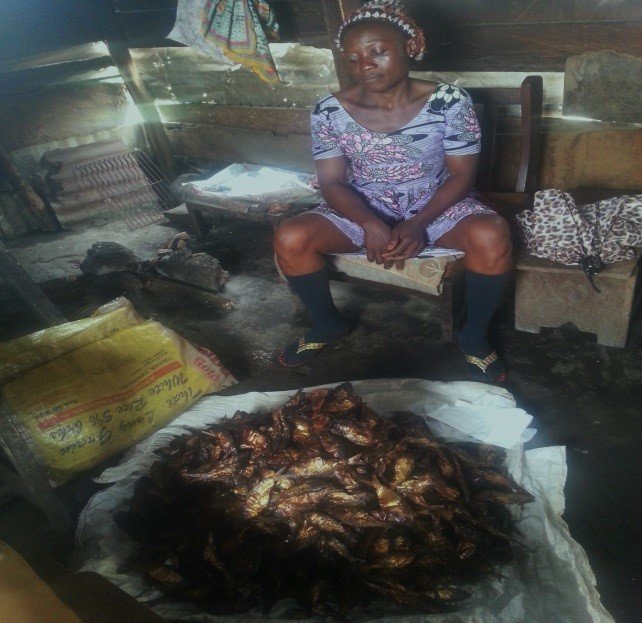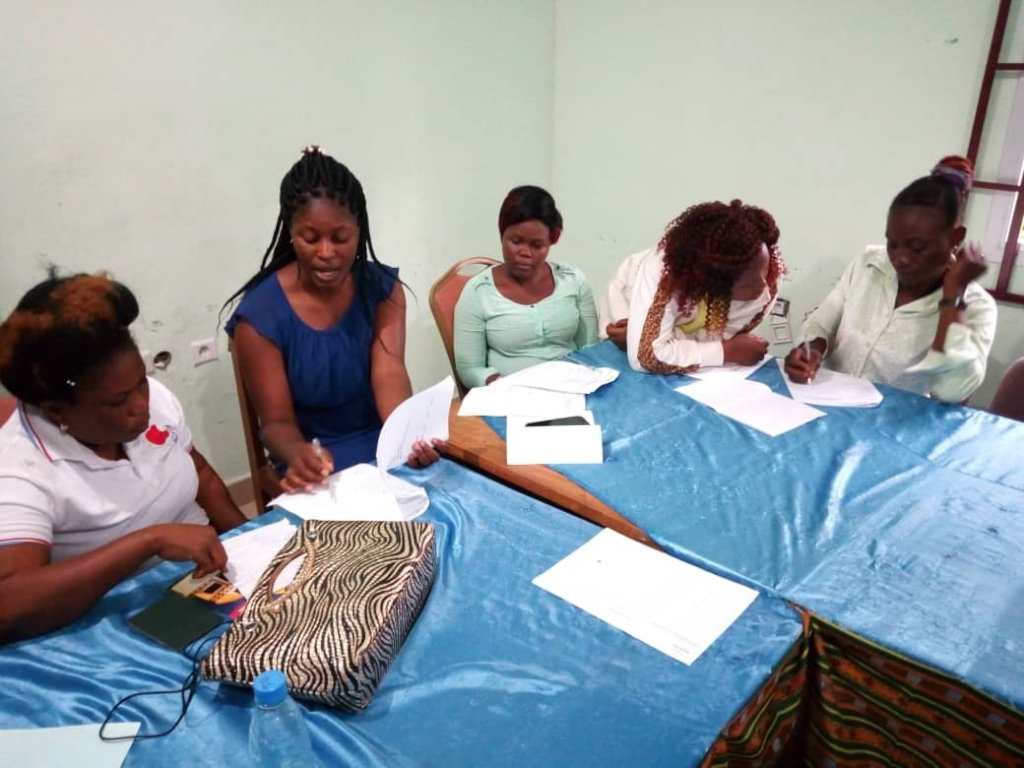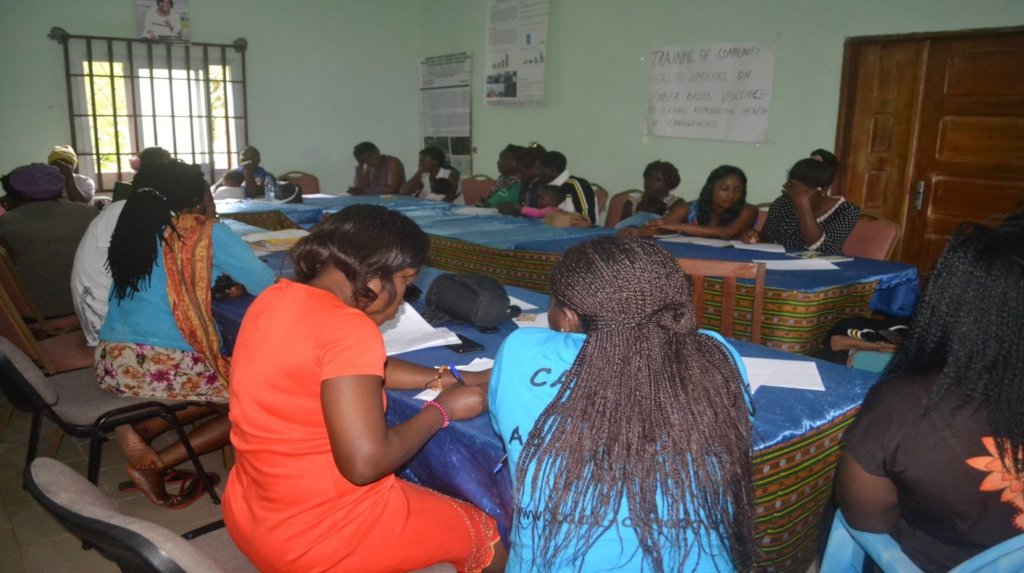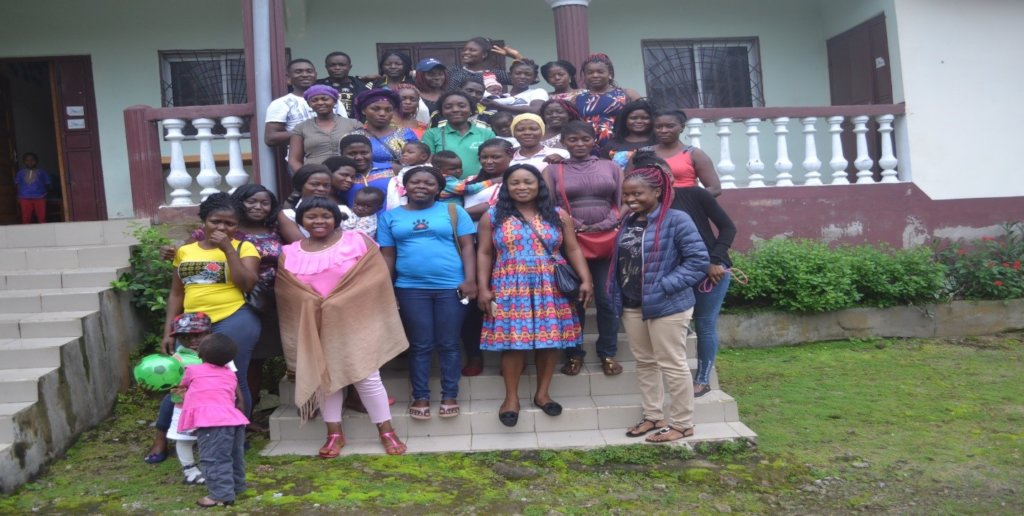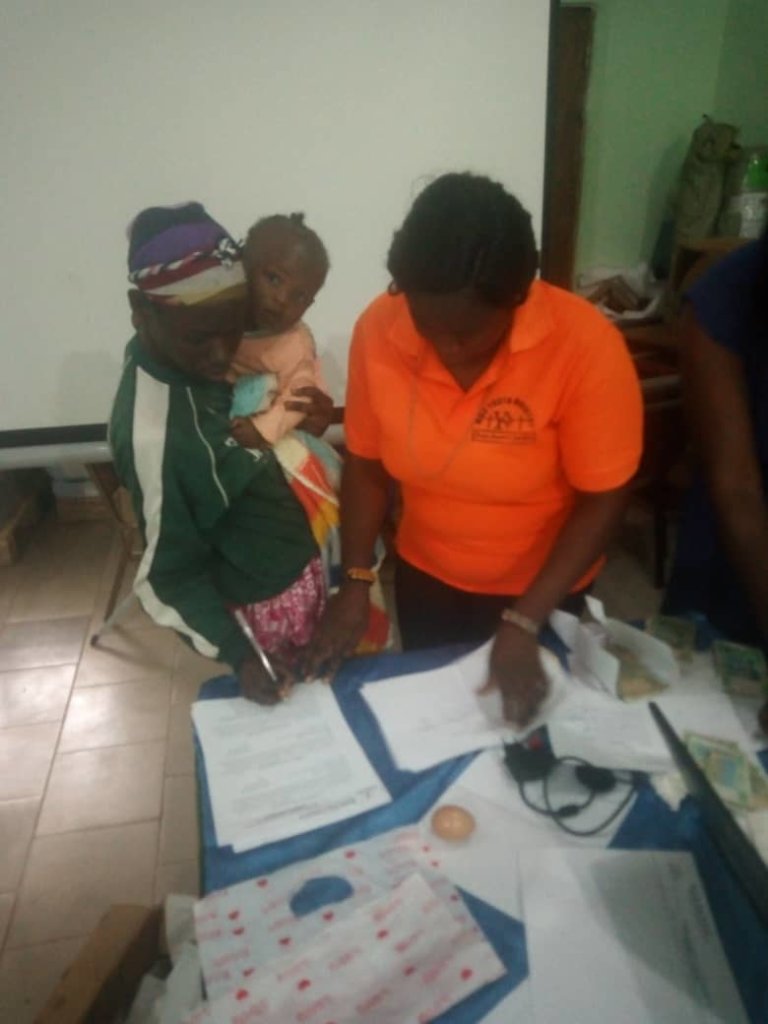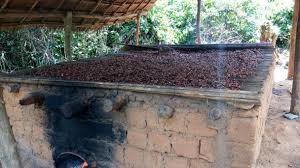By Sandrine Teghen | Volunteer
Due to the ongoing crisis in the North West and South West Regions of Cameroon, many women and girls have become much more vulnerable than before. Hundreds of thousands of women have been internally displaced thereby exposing them to all form of exploitation. It was on this note that Reach Out NGO decided in July 2019 to train 10 vulnerable women who have shown interest in business on how to maintain a successful business, bookkeeping and the advantages of savings. And most importantly, gave them grants to start their businesses.
Among these new beneficiaries is Shirlie who recounts her life in the bush in Munyenge, one of the most affected villages in the South West Region.
"I used to sell cooked food in Munyenge. But things turned sour on the 1st of October 2018. The military stormed our village in search of Non-State Armed Groups. Everything of ours was scattered including the food in the flasks i was selling, and we all ran to the bush without carrying anything.
Life in the bush was frustrating and challenging. We lived in a cocoa oven for this period of time. [Picture of a sample cocoa oven in the gallery]. We were 35 of us living in a cocoa oven. It was like a whole society comprising of babies, adults and the old. There in the bush there was no boundary as to who owns what. Anything that was eatable we took and ate, not minding who owns it. Plantains, plumps, tubers of people we don’t know became ours. We mostly roasted all these because we did not carry pots. Young women like me were mostly the ones looking for food because our young boys were at risk. The military targeted them and killed them claiming they are “Ambas” [members of the insurgency groups]. As for water, you don’t drink because the water is clean but because you are thirsty. Any liquid was drinkable in the bush. We drank it not minding the smell or colour. As for medication, herbs and tree trunks helped us so much. Without any proper diagnosis, our parents and grandparents living with us gathered herbs and tree trunks and boiled for the sick to take. Most at times they just assume is malaria or typhoid that one is sick of.
My family and I stayed in the forest for over 7 months In March 2019. A friend of mine who had ran from Munyenge asked me to come to Buea and start anew. Unfortunately, things did not turn out as planned. Living with my friend’s brother was not really easy. I was not doing anything to contribute to the welfare of the house. One day he told me that he wants me to be his girlfriend which I refused, this resulted to problems in the house. I could not do anything freely and was always uncomfortable. It came to my mind that I should look for another place to stay. So I complained to my aunty who is married to a pastor and have been displaced too from Muyuka to Buea. Though their house too is saturated she begged a neighbor of hers here to lend me this place where I am presently. I have been living here with my son. Unfortunately, the people I stay with say he disturbs a lot and eats a lot. To avoid problems, I sent him to my mother, who has successfully left the bush and is also in Buea. I have longed to have something stable doing since I came to town. Since March 2018, I have been doing manual jobs like tilling the soil, weeding people’s farms for money. Thanks to one of such jobs that I was able to have 5000 francs [8.5 dollars] to bring my son to Buea.
Being one of the beneficiaries of this program gives me hope and joy because with this my new business, I can rent a room of my own, be able to cater for my children and my parents. I also intend re-starting my food business when I have enough capital. "
Thank you for being there for her.
By Sylvie Ebitoh | Assistant project Coordinator
By Sylvie Ebitoh | Project Coordinator
Project reports on GlobalGiving are posted directly to globalgiving.org by Project Leaders as they are completed, generally every 3-4 months. To protect the integrity of these documents, GlobalGiving does not alter them; therefore you may find some language or formatting issues.
If you donate to this project or have donated to this project, you can receive an email when this project posts a report. You can also subscribe for reports without donating.
Support this important cause by creating a personalized fundraising page.
Start a Fundraiser